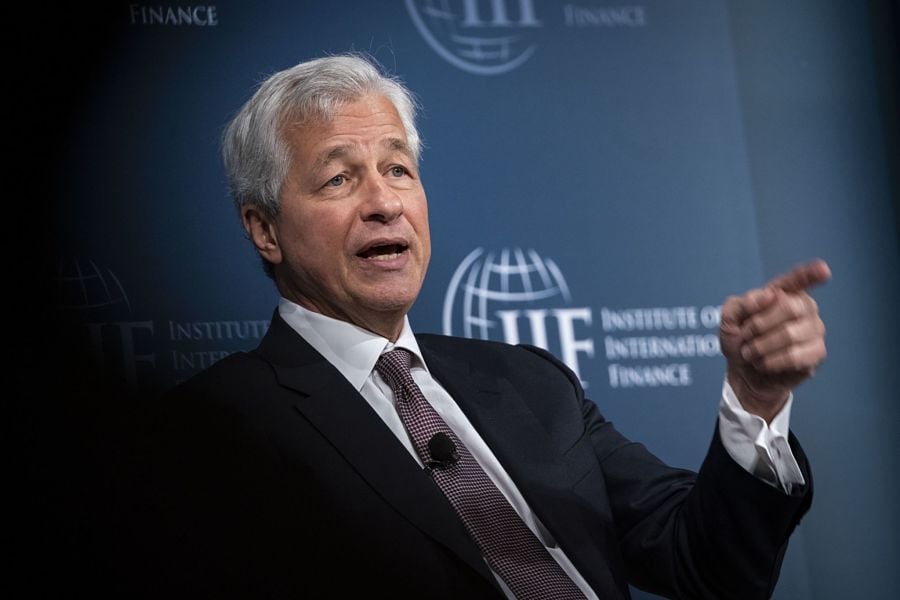

Cutting taxes for lower-income Americans would improve their upward mobility, health and lives overall, and contribute to growth of the US economy — even if doing so means raising taxes for wealthier people, JPMorgan Chase & Co. Chief Executive Jamie Dimon said.
“This is, I think, as much of a no-brainer policy as any I’ve ever seen,” Dimon said Friday at a panel discussion in Washington hosted by the Bipartisan Policy Center. Tax reductions for lower-income people would be used for food, taking care of children and education. “And I would pay for it by taxing the wealthy a little bit more.”
US lawmakers are debating reforming and expanding the earned income tax credit, or EITC, which helps some low- and moderate-income Americans cut the amount of taxes they owe annually. Under the EITC, taxpayers may be eligible for refunds if their credit surpasses their tax liability for the year. In addition to the federal EITC, many states have their own credit.
Tax increases for richer Americans could be used to fund a federal EITC expansion, Dimon said.
“There are so many tax breaks out there that shouldn’t be there,” he said.
That spurred former House Speaker Paul Ryan, who appeared on the panel with Dimon, to mention rules that allow some taxpayers to deduct certain state and local taxes from their adjusted gross income — something that tends to benefit people in higher-tax states such as New York, New Jersey and Connecticut. “SALT — let’s get rid of SALT completely,” Ryan said.
“I agree with you,” Dimon said. “And here I’m a New Yorker, and all my friends in New York hate me” because of his stance.
Dimon, 67, is among the very wealthy himself, with a net worth of $2.4 billion, according to the Bloomberg Billionaires Index. JPMorgan said last week that it raised Dimon’s pay 4.3% to $36 million for 2023, a year in which the New York-based company notched the highest profit in the history of US banking.

AI is no replacement for trusted financial advisors, but it can meaningfully enhance their capabilities as well as the systems they rely on.

Prudential's Jordan Toma is no "Finfluencer," but he is a registered financial advisor with four million social media followers and a message of overcoming personal struggles that's reached kids in 150 school across the US.

GReminders is deepening its integration partnership with a national wealth firm, while Advisor CRM touts a free new meeting tool for RIAs.

The Texas-based former advisor reportedly bilked clients out of millions of dollars, keeping them in the dark with doctored statements and a fake email domain.

The $3.3 trillion tax and spending cut package narrowly got through the upper house, with JD Vance casting the deciding vote to overrule three GOP holdouts.
Orion's Tom Wilson on delivering coordinated, high-touch service in a world where returns alone no longer set you apart.
Barely a decade old, registered index-linked annuities have quickly surged in popularity, thanks to their unique blend of protection and growth potential—an appealing option for investors looking to chart a steadier course through today's choppy market waters, says Myles Lambert, Brighthouse Financial.
